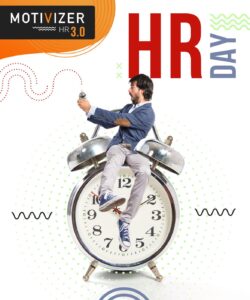The future of HR – what will be the key to organizational success?

kategorie: Management
temat: benefits, digitization of hr, employee health, management philosophy, time management
The COVID-19 pandemic has shown how many procedures in a company that were previously carried out only with paper documents can now be digitized. This digital transformation, that is, the transfer of business processes to the digital world, is also a great opportunity to simplify, automate and increase their productivity. The pandemic has also taught us a very clear distinction between workflow tasks that we treat as technical and those that require human interaction.
In the HR sector, most processes can now be automated and, as a result, specialists can focus more on creative work, real support for employees, rather than analyzing and processing documents. Properly selected tools can reduce the number of paper documents in the HR area by up to 90%, support the building of employee engagement and automate subscription processes such as sports cards or medical packages.
We are witnessing historical changes in the job market. In Warsaw, there are more job offers for remote or hybrid work than for stationary work. In the UK, over 85% of financial sector workers do not see the office as their main place of work. In Poland, especially in service industries, this trend is becoming one of the main challenges for HR departments. According to this, workplaces are evolving towards an approach more appropriate for employees and their productivity, which increasingly takes the form of a hybrid work model. The most advanced in this new approach to work are companies in the new technology sector, where digitization and automation are part of their own DNA. With the popularity and interest in hybrid work increasing, so has interest in benefits that an employer can offer to employees working outside the office.
Many companies in response to the needs of their employees have started to implement cafeteria systems, through which employees can decide for themselves how and on what they want to spend the funds allocated for benefits. Thanks to digital solutions, we can also replicate the document flow, approval and reporting, and all HR system functionality and employee modules can be adapted to our own needs.
Wellbeing becomes a necessity
The beginning of 2020 and the global crisis caused by the coronavirus has initiated a revolution in the labor market. The beginning of this year, and with it the attack of Russia on Ukraine, further accelerates these changes. Both of these events have a huge impact on the functioning of organizations, which had to strengthen their actions towards employees.
Wellbeing, a comprehensive (psychological and physical), subjective state in which we feel comfortable, has never been more important than today (read more about the benefits of wellbeing in the organization). Stressful situations, such as a global pandemic, proximity to war, but also inflation and rising interest rates, have a huge impact on employees and their sense of stability. And this in turn affects their efficiency and the tasks entrusted to them by the employer and leads to burnout. Organizations that build their brand as a responsible and strong employer should definitely support their employees in these difficult times and seek solutions that will improve the well-being of the team.
Based on the last two years, we know today that we cannot predict the future. We do not know what is ahead of us and we should be ready for everything. Therefore, in view of the fact that there may be new crisis and stressful years for employees ahead, it is worth having a plan today on how to adapt to them. Remember that employees are the foundation and foundation of every organization and their well-being will largely depend on the organization’s success and results achieved.
Author:
Paweł Filutowski
CEO/CTO Motivizer sp. z o.o.
Recent Posts:
- Capital24.tv Debate with Piotr Dubno – “Economy, Innovation, Investments. What Changes Await Us?
- The future of HR – what will be the key to organizational success?
- Are you keeping up with the idea of a modern workplace?
- Burnout, how can an employer help an employee?
- Digitalization of HR is key to unlocking the full potential of an organization

